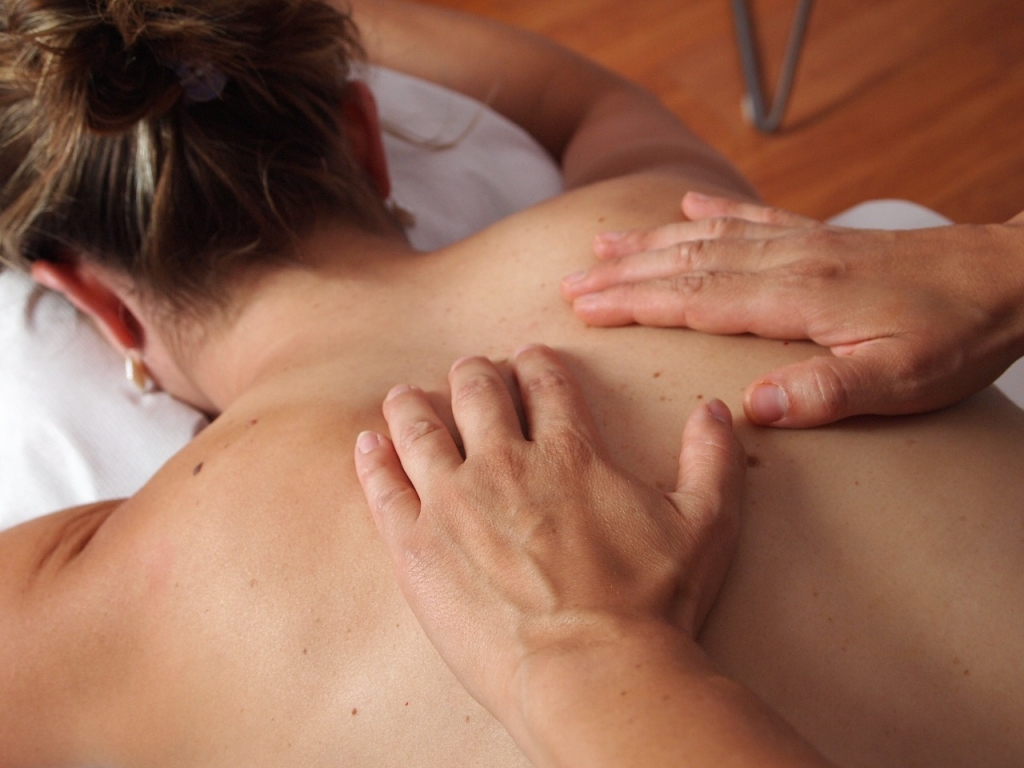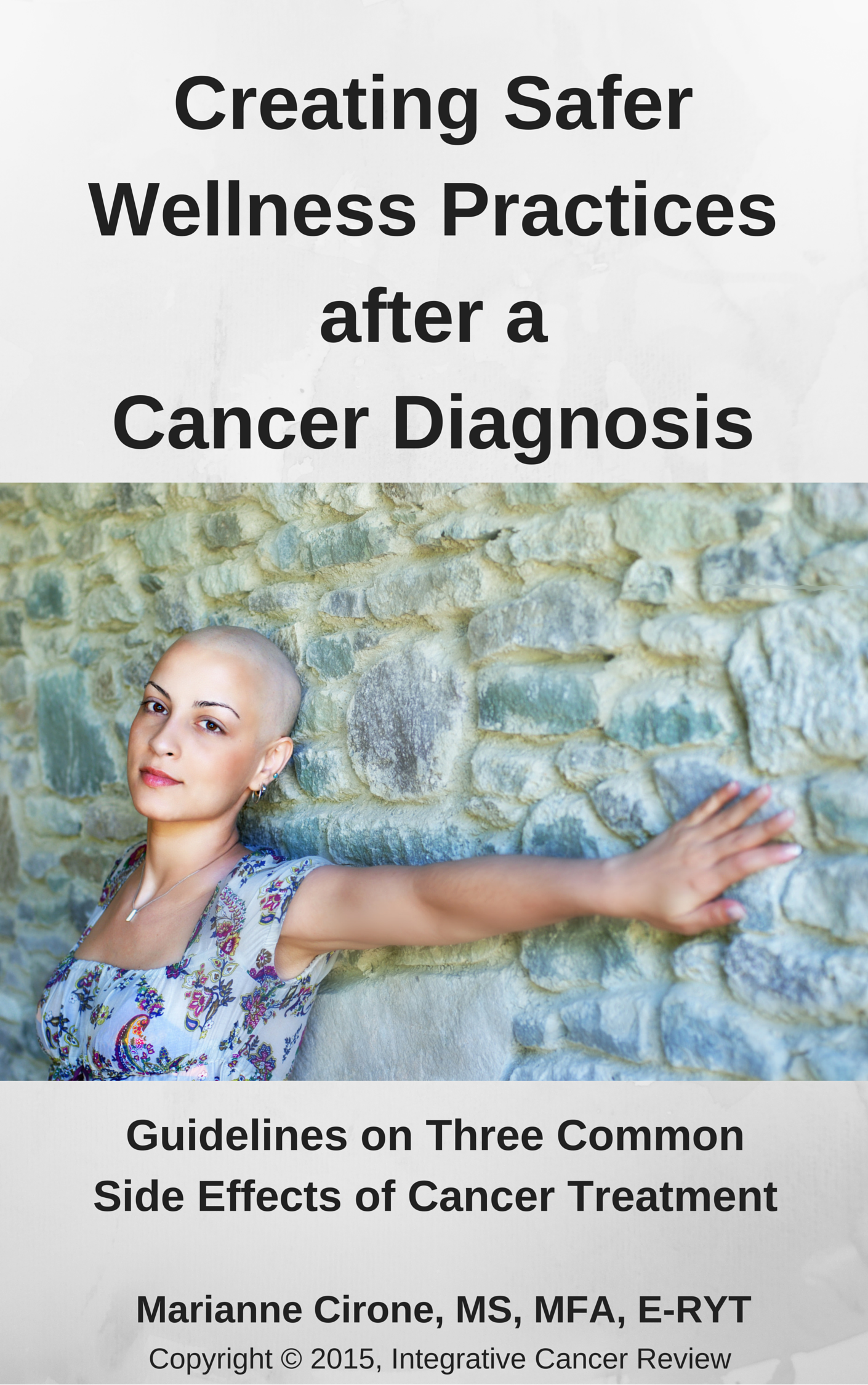
Massage & Body Work: A Balm after Cancer Treatment
“I was shocked when my arm started to swell after receiving a deep tissue massage. I had been out of cancer treatment for 7 years when I had the massage and the swelling happened soon after. I went to my doctor, and she diagnosed me with lymphedema and said that the deep tissue massage most likely triggered it.”
— Catherine, age 58
So much of the touch that people receive during cancer treatment ranges from uncomfortable, to downright painful. So, after treatment for cancer, experiencing a pleasant sense of touch like a gentle massage can feel like a healing balm. Massage is a complementary therapy that may have important benefits for people affected by cancer.
But for several key reasons, it is important to find a massage therapist who has specialized training in oncology-modified massage guidelines for properly adapting the massage. An empowered client will be able to ask the right questions in finding the best therapist, so the following information will help to guide a conversation. Anyone who has had a cancer diagnosis should interview a massage therapist before the appointment to make sure that there are adequately trained to deal with the massage issues that exist with clients who have had cancer and cancer treatment.
Why Finding an Oncology-Trained Massage Therapist is Essential
First, there are key modifications needed that massage therapists without proper oncology-focused training may not be aware of. An oncology-trained massage therapist will ask the client the right questions in order to maximize the benefits of the massage, while at the same time, reducing any risks that could exist.
For example, after certain cancer treatments, such as surgical lymph node removal and radiation, patients may be at a higher risk for lymphedema. Lymhedema is a condition of swelling that can occur after damage to the lymphatic channels, and it is considered manageable but not curable. Lymphedema, once triggered, can remain a lifelong challenge. So, it is important that the massage therapist know what questions to ask in order to keep the client safe. In cases of lymphedema risk, certain types of pressure should not be used. Types of massage, such as deep tissue massage, may be contraindicated for the “at-risk” area of the body. In addition, there may be certain limitations as to how long the therapist should work on a certain area of the body.
An important consideration with lymphedema risk, is that it is considered to be a lifetime risk once lymph nodes have been damaged. So, even when a person has been out of treatment for many years, the lymphedema precautions should still be followed in order to minimize the risk of triggering the condition. This is information that both the therapist and the client should be aware of.
Second, another unfortunate possibility for a cancer survivor seeking a massage from a massage therapist who is NOT oncology-trained is that the cancer survivor could be denied the massage at all. This could be for several reasons. Years ago, there was a misconception that massage could increase the risk of spreading the cancer to other parts of the body and some therapists or massage business are still working under these misguided philosophies. It is now understood by the medical community that non-circulatory, relaxation massage does not spread cancer.
If the therapist or business is unprepared to work with people with cancer, it may be for the best under the circumstances that the potential client not receive the service, considering the potential risks of working with a therapist who has not had the appropriate training. However, in order to get access to the benefits of massage, it is important for the person affected by cancer to be aware of the importance of finding an oncology-trained therapist and know how to go about doing this.
According to Michelle Haugen, Lead Oncology Massage and Lymphedema Therapist in the Cancer Integrative Medicine Program at Rush University Medical Center, suggests trying to talk to the massage therapist prior to the appointment. “When booking an appointment, it is best to ask if the massage therapist is oncology-trained. Then I would ask all my questions at the appointment if the therapist was not available for a phone consult. Of course, a phone consult before the appointment is great, but if that’s not possible it still works to come see the therapist and discuss the session that day. This is the most common scenario in my practice.”
How to Find an Adequately Trained Oncology Massage Therapist
The following provides some resources to use in finding a massage therapist who is oncology-trained with the background to know how to safely modify the therapy for the myriad issues that can occur as a result of cancer and cancer treatment.
The Society for Oncology Massage (S4OM) is a leading advocacy organization for Oncology Massage, which exists to support and educate massage therapists, consumers, and health professionals about the value and specific considerations and applications of oncology massage. As their motto states:
When it comes to oncology massage we answer the questions, “What is it?” “Why is it?” and “Where is it?”
The organization offers position papers on topics related to basic training, and information on oncology massage-related research. They note that from 2006 to 2008, there were 1370 citation per year in the scientific literature referring to cancer and massage or oncology and massage. Multiple studies link gentle massage for people affected by cancer with significant reductions in nausea, depression, anxiety, fatigue and pain.
The s4OM website provides a list of questions to ask when interviewing a potential massage therapist for an oncology-focused massage client and provides a list of trained professionals that can be located by zip code. They also have a list of hospitals where massage is offered for people going through cancer treatment—a list that includes many of the leading cancer treatment programs in the country. See the Society for Oncology Massage for more information on finding an oncology-trained massage therapist or to find out more about oncology massage training programs.
Gayle McDonald, MS, LMT, is the original source of oncology massage awareness and offers training through a staff of highly qualified professionals at Oncology Massage Education Associates. She wrote Medicine Hands: Massage Therapy for People with Cancer and Medicine Hands Therapists Workbook and Journal: Activities to Deepen Oncology Massage Practice. Oncology massage educator, Tracy Walton, MS, is also one of the leaders in this field, and she leads oncology massage trainings and offers advanced mentorship.
Other recommended resources include the highly rated DVD and manual, Touch, Caring and Cancer: Simple Instruction for Family and Friends (English version) and Medical Conditions and Massage Therapy: A Decision Tree Approach by Tracy Walton.
See more on Massage & Body Work:
- Jojoba, Safe Skin Products and Cancer Care
- 2017 Breast Cancer Rehabilitation and Wellness Summit – FREE Access to 45 International Expert Speakers
- An Oncology-Trained Esthetician’s Skin Care Tips: During and After Cancer Treatment
- Jojoba and The Cancer Patient: Essential Facts for Glowing Skin with Geralyn O’Brien













